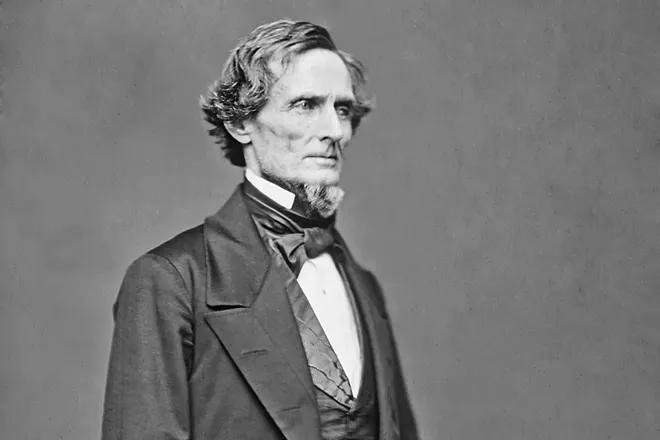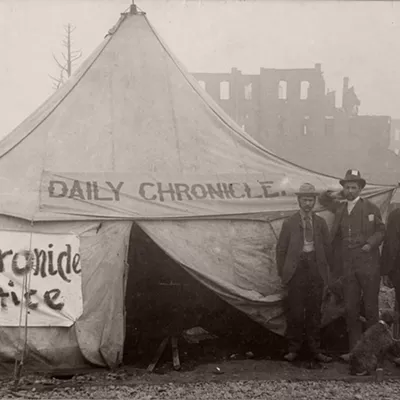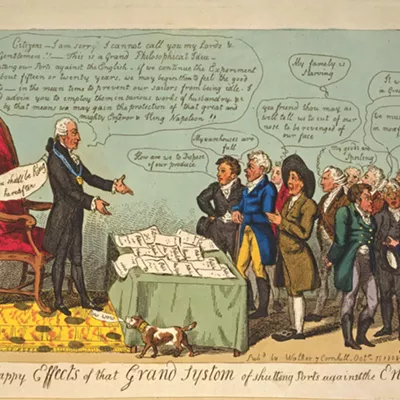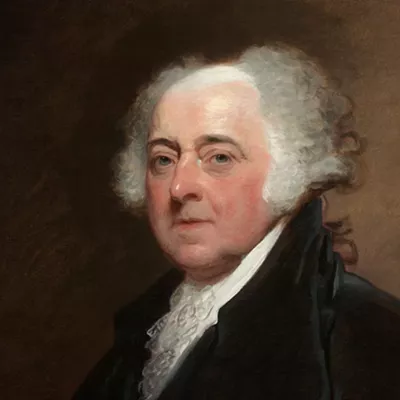On March 31, a Manhattan grand jury indicted the 45th president of the United States of America on 34 felony counts of falsifying business records. Four days later, a media circus packed itself into a New York court building to capture images of Donald Trump arriving for his arraignment in which he pleaded not guilty to the charges.
To Trump's unwavering supporters, the charges brought by Manhattan District Attorney Alvin Bragg are a cynical abuse of power to smear the former president, who is a frontrunner for the Republican nomination for the presidential election in 2024. For Democrats — and, if recent polls are to be believed, a majority of Americans — Trump's nefarious shenanigans have finally caught up with him. To them, Trump's indictment proves Thomas Paine's famous claim in his revolutionary pamphlet Common Sense that in America, "the law is king." Trump's prosecution demonstrates that no one is above the law.
Whether friend or foe of our former president, there is no question that this is a historic moment in the history of the republic. This is the first time that a former president of the United States has faced a criminal indictment. But this is not the first time that an American president has faced trial.
After the Union victory in the Civil War, Jefferson Davis, president of the Confederate States of America, faced federal indictments for treason in the 1860s. As legal scholar Cynthia Nicoletti has explained, government lawyers believed that prosecuting Davis would send an important message about the sanctity of the rule of law in America after the tumultuous events of the secession and Civil War.
Despite the significance of the indictments, the cases against Davis never made it to trial. The indictments of Davis and Trump share more differences than similarities. Nevertheless, the failure of federal prosecutors to bring the former Confederate president to trial in the 1860s offers a cautionary tale for Alvin Bragg and the proponents of the rule of law in the 2020s.
Jefferson Davis lived a life of public service, made possible by the labor of enslaved African Americans on his family's Mississippi cotton plantation. A graduate of West Point, he served in the U.S. House of Representatives before commanding a regiment of volunteers in the Mexican-American War. Davis was elected to the Senate from Mississippi after the war, before President Franklin Pierce named him secretary of war in 1853. James Buchanan's victory in the presidential election of 1856 saw Davis returned to the Senate.
Despite his lengthy service in the government of the United States, Davis resigned his Senate seat in January 1861, after Mississippi voted in favor of secession from the Union following the election of Abraham Lincoln. A confederate constitutional convention unanimously elected him president of the Confederate States of America in February 1861. Davis led the Confederate government throughout the war, fleeing its capital of Richmond, Virginia, in March 1865 before he was finally captured by U.S. forces in Georgia that same May.
While Davis languished in jail in Virginia, the new administration of Andrew Johnson (who became president after Lincoln's assassination) tried to figure out what to do with him. What charges should Davis face? Which body should try him? Davis was indicted on a single count of treason by a Virginia grand jury in 1866. Davis' lawyers, however, pursued a skillful strategy of avoidance and delay to prevent Davis coming to trial.
Up against the deadline of the statute of limitations, a second grand jury issued a new indictment against the former Confederate president in 1868. Davis' lawyers again proved more than a match for the government. They successfully quashed the treason indictment in court in December 1868.
Though the government appealed this decision to the U.S. Supreme Court, embattled President Andrew Johnson (who had faced impeachment in 1868) issued an amnesty for former Confederate officials that same month. Davis' legal team had pulled off what had seemed impossible: He was a free man.
Though the indictment of a former president of the United States has grabbed the headlines, this is not the first time that Trump has faced legal challenges. He has been party to numerous civil lawsuits related to his business dealings. As a wealthy man, Trump has learned that delay is key in winning legal battles. If he can outspend and outlast his opponents, Trump believes that he can avoid legal consequences.
The case of Jefferson Davis warns us of the danger that delay poses to the rule of law. Trump is not going to bankrupt the state of New York, but his lawyers might pursue the same style of tactics employed by Davis' legal team in the 1860s to ensure that his indictment never comes to trial.
Bringing Trump's indictment to a legal resolution is critical to the rule of law in this country, whether he is found guilty or not guilty by a trial of his peers. Now the die is cast with his indictment, the American people need to know that the law, not a former president, is king. ♦
Lawrence B.A. Hatter is an award-winning author and associate professor of early American history at Washington State University. These views are his own and do not reflect those of WSU.





















